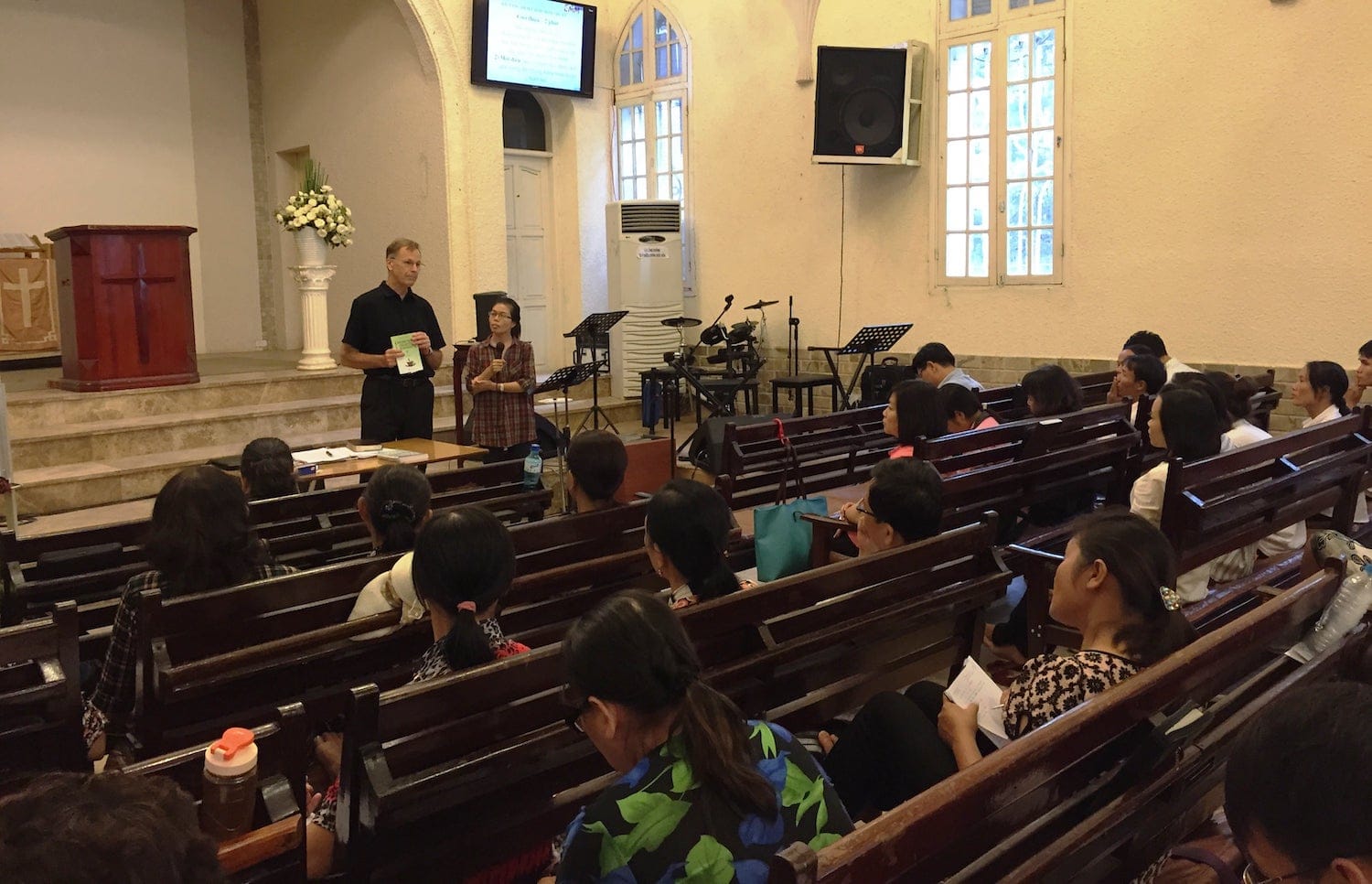“Religion & Citizenship Dialogues” and “Reconciliation & Mediation Training” in Vietnam

A dialogue on “Religion & Citizenship: Positive Contributions of Religion in Society” was held from 7-8 September 2015 in Ha Long city, Quang Ninh province. The event brought together 90 government officials and faith leaders from 21 northern provinces. The training was conducted in partnership with the governmental Committee on Religious Affairs (CRA).
The event created a unique space for government officials and religious leaders to engage as equals in open dialogue. Participants heard about each other’s challenges and desires to promote the positive contribution of people of faith to their communities. Representatives of faith groups also presented examples of their ongoing charity work and requested the government in opening up the space for faith groups to be able to do more in fostering social development and ethics in Vietnam. Religious communities participating in this dialogue included the Baha’i, Buddhists, Catholics, Cao Dai, and Protestants. Government agencies represented included: the Ministry of Public Security; People’s Mobilization of the Central Government; the Fatherland Front; Vietnam-USA Society; Human Rights Office; and CRA from the central and provincial levels.
IGE also conducted a “Reconciliation & Mediation” workshop in Hanoi from 28 September-2 October. The workshop trained religious leaders in how to proactively resolve conflicts, both religious and non-religious in nature, in their local communities. The workshop was conducted in partnership with Eastern Mennonite Missions and Evangelical Churches of Vietnam-North. The training equipped participants with mediation skills as well as curricular materials to enable them to replicate the training. There were 40 participants representing 30 organizations and churches from 17 provinces (encompassing north, central, and south Vietnam) as well as various ethnic minority groups. The majority of participants were women, who made up 29 of the 40 participants. Participants shared that the training not only increased their capacity to prevent and constructively resolve conflicts, but also build a peacemaking culture in their communities.
